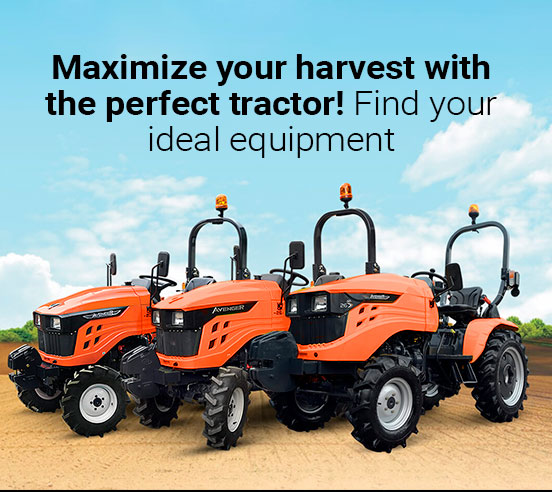 Choosing the best tractor for your farming business depends on several key factors that must be considered in order to make an investment that meets your specific needs and improves the efficiency of your operation. Here are some tips to guide you in selecting the right tractor:
Choosing the best tractor for your farming business depends on several key factors that must be considered in order to make an investment that meets your specific needs and improves the efficiency of your operation. Here are some tips to guide you in selecting the right tractor:
- Evaluate your needs: Consider the size of your farm, the type of crops you have or plan to have, and the specific tasks the tractor must perform (plowing, planting, harvesting, etc.). This will help you determine the power and type of tractor you need.
- Tractor power: Power is measured in horsepower (HP) and is crucial in determining how well the tractor can handle different tasks and terrains. Higher power generally means the tractor can handle larger and heavier implements but will also be more expensive.
- Size and maneuverability: Make sure the tractor fits the size of your fields and can easily maneuver through them, especially if you have small or curvy plots. Maneuverability is key to optimizing work and avoiding damage to crops.
- Type of traction: Tractors come with 2WD, 4WD, and track traction. 4WD tractors are better for difficult and wet terrains, while 2WD tractors might be suitable for lighter tasks and flat terrains. Track tractors offer the best weight distribution to minimize soil compaction.
- Comfort and ergonomics: Since you’ll be spending many hours operating the tractor, look for features that ensure your comfort and safety, such as good visibility, comfortable seats, accessible and easy-to-use controls, and a protected cabin if you work in extreme climates.
- Fuel efficiency: Fuel efficiency is an important factor in keeping operational costs low. Consider the fuel efficiency of different models and technologies available, such as diesel engines which are generally more efficient than gasoline ones.
- Support and technical service: Make sure there is good support and technical service available for the tractor you choose. This includes the availability of spare parts and access to maintenance and repairs, which is crucial to minimize downtime.
- Budget: Finally, consider your budget. Although it’s tempting to go for the cheapest tractor, remember that quality, reliability, and long-term technical support can save you money and headaches in the future.

Doing prior research, talking to other farmers, and visiting dealers to see the tractors in person and, if possible, test them will help you make an informed decision. Remember, the best tractor for your business is one that fits your specific needs and improves the efficiency and productivity of your farming operatio

